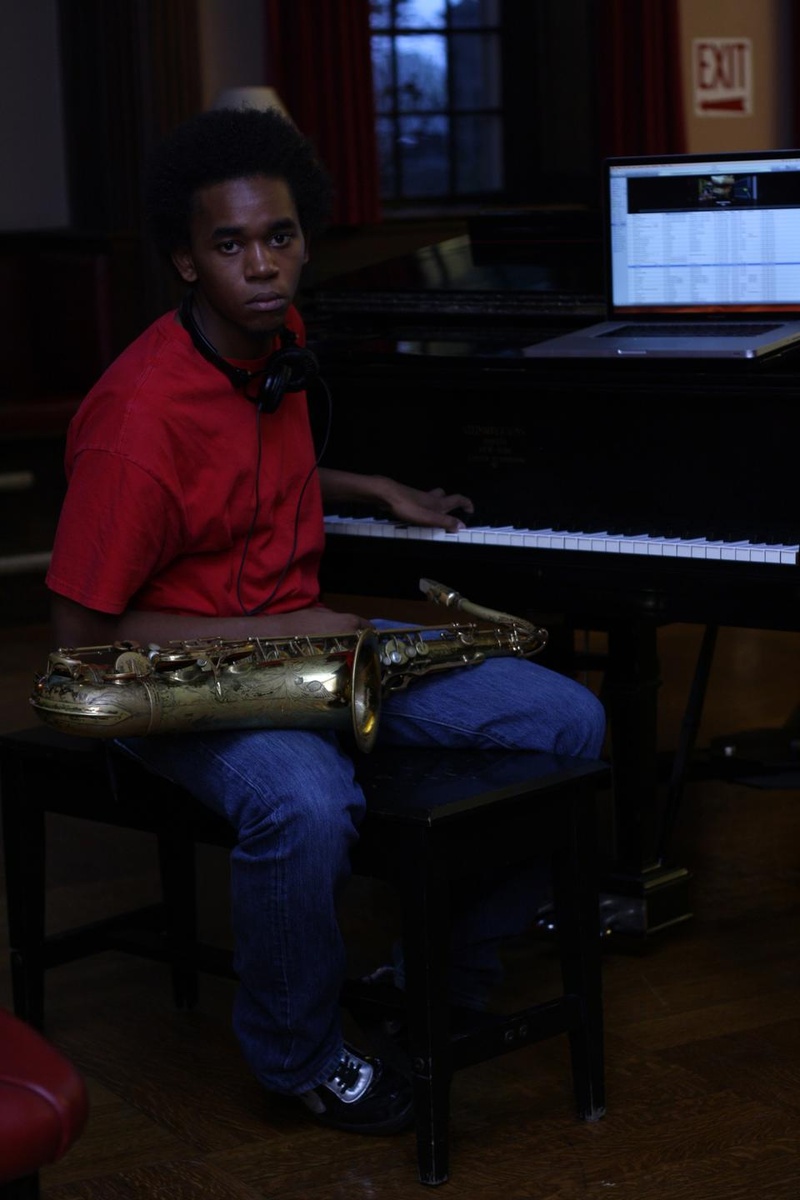Whether you’ve heard his distinctly loud saxophone style blasting from his room in Winthrop or seen him in one of his many neurobiology classes, Kazemde A. George ’12 stands out among the young musicians in the Boston community as well as within the student body.
Participating in Harvard’s joint degree program with the New England Conservatory, the junior will receive a bachelor’s degree in neurobiology and a master’s in music in five years. Although his friends may joke about him being a musician and going to Harvard on the side, George has found that it is more than possible to follow one’s academic pursuits without abandoning a love for music.
The Harvard Crimson: How do you think your music style has changed since you first started?
Kazemde George: Certain teachers have really taken me to another level. I study with Danilo Perez, who I am a big fan of as a musician. He’s this Panamanian musician who plays in my favorite jazz band right now, which is the Wayne Shorter Quartet. Studying with him is amazing. He heard me play a couple times and saw what I could do and was trying to do. And he really took me to the next logical place for where I was going.
One time I brought my band in for a lesson. We played a song for him and he said, “OK, that was good, but you guys should put more webs in your playing. You guys need to play with more webs. You should play more like Spiderman.” So that’s the kind of teacher he is. He really gave me a few important things that are defining characteristics of my playing now by telling me to play like Spiderman.
THC: What do you think are your defining characteristics?
KG: I play really loud. I’m like the loudest sax player I know. I do this thing where I play really fast notes that blend together. Also, my dad is a drummer, so sometimes I think I’m more rhythmic. I don’t think I’m the most melodic player.
THC: Considering your individualistic style as a jazz artist, how do you see yourself contributing to this genre and the evolution of music in general?
KG: People would take swing music and intellectualize it as much as they could. It was crazy and so edgy because it was really intellectualized and would end up sounding like Stravinsky. That’s what jazz was. And now modern musicians take that sound and try to reproduce it, and that’s a lot of what modern jazz is today. But for me, what defines jazz is not the actual sound of the notes they are playing, but that social context of rebelling against the popular music and taking something that is really simple and danceable and making it really intellectualized. And that’s why I feel like it’s totally appropriate to do the same thing with hip-hop.
I want to take hip-hop and intellectualize it in the same way swing was. There’s no name for that yet. That’s where I’m trying to go. The direction I’m trying to go is making that new genre out of hip-hop and pop music. Taking the music people dance to today and intellectualizing it. If I could make an analogy, it’s like Picasso. Take a picture of a face and make a crazy disproportionate interpretation of it. And arguably, that’s a more higher intellectual way of thinking, because it’s more abstract and different than just drawing a picture of a face exactly. I would argue it’s of a higher intellectual order for Picasso to make this abstraction of a face. And I’d like to make an abstraction of a beat so that it sort of alludes to a beat, like Picasso did with art.
THC: So what do you envision for your future? Do you see yourself as a neurobiologist doing music as well?
KG: Some people are pre-med. I am pre-music. I will probably teach a lot, and hopefully get some gigs and make enough money to live. For me, it’s not about the money. People always comment and say its great that I go to Harvard because I have that back up plan. But I don’t see it like that--I think I would rather just be homeless and play music all day than have money and a nice apartment and not play music and have it just be a hobby. That’s how I feel in a really idealistic sense.
Read more in Arts
Mahler's 'Resurrection'













